UJ website: https://www.uj.edu.pl/en_GB
BM website: http://langusta.edu.pl
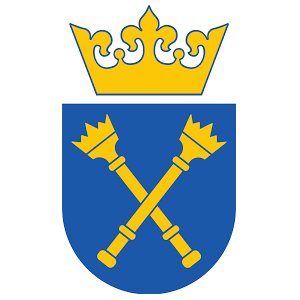 The Jagiellonian University is the oldest higher education institution in Poland and one of the oldest in Europe. It was founded on 12 May 1364 by the Polish king Casimir the Great. The Jubilee year 2014 marked the 650th anniversary of this remarkable event.
The Jagiellonian University is the oldest higher education institution in Poland and one of the oldest in Europe. It was founded on 12 May 1364 by the Polish king Casimir the Great. The Jubilee year 2014 marked the 650th anniversary of this remarkable event.
The members of the Krakow team work on neurocognitive aspects of the bilingual mind and brain and on psychological issues related to cultural adaptation of migrant children and adults. Our team is involved in the Bilingualism Matters branch in Krakow.
Main goal of BM Kraków is to bring scientific knowledge outside of the laboratory and raise awareness about bilingualism among those who need this knowledge the most: teachers, psychologists, educational support staff at schools and parents of bilingual children. We promote this knowledge by organizing various activities, including talks and workshops as well as by publishing information on an internet platform http://dwujezycznosc.info/.
The goal of this organization is to raise awareness about the social, cognitive and linguistic benefits of bilingualism and second language learning, and to share our expertise (in an accessible format) with schools, policy-makers and the local community. Currently, the Granada team carries out a dissemination national project entitled “How several languages coexist in the brain: transferring research from the lab to the society” that aims generating multilingualism and multiculturalism activities, encouraging passion for science, and promoting science in women.
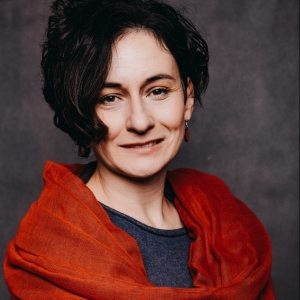
Zofia Wodniecka, PhD
email: zofia.wodniecka@uj.edu.pl
Associate Professor at the Institute of Psychology of the Jagiellonian University. She is the head of the Psychology of Language and Bilingualism Laboratory “LangUsta”, which was established in 2010 thanks to a FOCUS subsidy from the Foundation for Polish Science. Her scientific work focuses on the cognitive and neural mechanisms of language used by bilingual people. She has completed numerous research stays and training in several countries, including Canada, USA, and Australia. She has been a partner in various international projects, such as European COST IS0804 project, Innovative Training Networks “MultiMind”, and the American National Science Foundation PIRE programme ‘Translating cognitive and brain science in the laboratory and field to language learning environments’. Her research has been funded by the National Science Centre and the Foundation for Polish Science.
Apart from her scientific activities, she has been involved in promoting bilingualism and different outreach activities: she is a director of Bilingualism Matters branch in Krakow, a co-author of articles and book chapters on bilingualism and multilingualism addressed to practitioners; conducts popular science lectures and workshops for parents and teachers of bilingual children, and founded a website dwujezycznosc.info which provides information platform for anyone interested in the topic. Together with Karol Chlipalski, she translated a guidebook for parents of bilingual children written by Barbara Zurer Pearson, entitled ‘Raising a Bilingual Child’ (‘Jak wychować dziecko dwujęzyczne’).
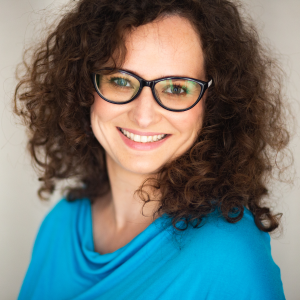
Joanna Durlik, MA
A doctoral student at the Institute of Psychology of the Jagiellonian University. Member of the Psychology of Language and Bilingualism Laboratory “LangUsta”. She also collaborated with the Language and Memory Research Group at the University of Granada. Her scientific work concerns changes that occur in language skills under the influence of intensive contact with a second language, for example in people living abroad. Her research is funded by the Polish National Science Center (PRELUDIUM and ETIUDA grants) and Ryoichi Sasakawa Young Leaders Fellowship Fund. She is an author and co-author of several scientific and popular science publications.
Apart from her research work, she completed postgraduate studies in teaching Polish as a second/foreign language. She has conducted numerous training and workshops on bilingualism addressed to teachers and parents of bilingual children, organised by the Polish National Commission for UNESCO, the Education Development Centre and Polish associations in Great Britain, Spain and Norway. She was a member of the research team and co-author of the project report ‘(Not)easy return home?: the functioning of children and young returning from exile’. She is the co-creator of the popular science website dwujezycznosc.info and worked on a project focused on promoting knowledge about bilingualism entitled ‘All about bilingualism’, financed by the Ministry of Foreign Affairs and the Senate of the Republic of Poland.
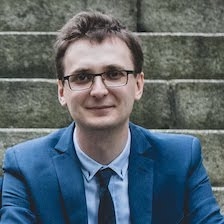
Krystian Barzykowski, PhD
Researcher at the Institute of Psychology of the Jagiellonian University. Member of the Applied Memory Research Laboratory research team. Since 2009, a member of the Board of the Krakow Branch of the Polish Psychological Association. His research interests include: the psychology of memory (in particular, episodic and autobiographical memory, elementary processes of recalling memories), psychological diagnosis, and cross-cultural psychology.
He is an author and co-author of more than 40 scientific publications, published in some of the top academic journals, both Polish and international. His research is funded, among others, by the National Science Centre. He was also awarded with a scholarship of the Minister of Education and Science. He graduated from the Helsinki Foundation for Human Rights (HFHR) trainers’ school and was awarded a HFHR trainer’s recommendation to promote knowledge and conduct workshops on multiculturalism and counteracting discrimination. He coordinated the work on the psychometric adaptation of Polish versions of the Cultural Competence Self-Assesment Questionnaire and the Cultural Intelligence Scale. Initiator and co-author of the first Polish handbook on psychological diagnosis in the context of multiculturalism and multilingualism, which was distinguished by the recommendation of the Council of Europe as an example of ‘good practice’.
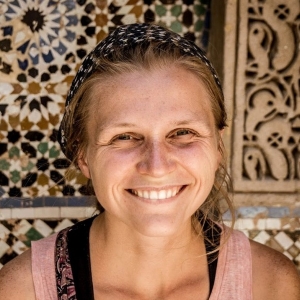
Paulina Szydłowska, MA
A culturologist, currently a doctoral student at the Institute of Psychology of the Jagiellonian University. Scientifically interested in developmental and clinical child psychology, migration psychology and cultural psychology. Currently she is researching the process of cultural adaptation of Polish children and youth living in Spain.
She is an author of about 10 scientific publications, which are largely directed to practicing psychologists. On a daily basis she works as a child psychologist. For many years she has been cooperating with the Polish Committee on the Elimination of Racial Discrimination. She also collaborated with UNESCO, the Foundation for Social Diversity, as well as with The Centre of Creative Education Kangur, conducting training sessions for teachers, psychologists and educators, on the specifics of working with a child with migration experience. She was a member of the research team and co-author of the project report ‘(Not)easy return home?: the functioning of children and young returning from exile’.
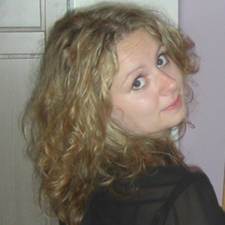
Kalinka Timmer, PhD
email: kalinka.timmer@uj.edu.pl
Dr. Kalinka Timmer is part of the LangUsta group headed by Dr. Zofia Wodniecka at the Jagiellonian University (Poland) with the Ulam grant from The Polish National Agency for Academic Exchange (NAWA). Her research interests are understanding how different language environments (e.g., monolingual/bilinguals) adaptively affect cognitive performance with behavioral and electrophysiological measures. Kalinka obtained her doctoral degree from Leiden University (The Netherlands) in 2013, investigating the underlying process of reading aloud in bilinguals. Afterwards she continued her career with Prof. Dr. Bialystok at York University (Canada) and with Prof. Dr. Albert Costa Universitat Pompeu Fabra (Spain) on two consecutive postdoctoral grants from the Dutch Organization for Scientific Research (NOW; Rubicon grant) and the Spanish government (MINECO; Juan de la Cierva grant).
To share our scientific knowledge with educators and multilingual individuals in society Kalinka has helped organize the Anela conference on bilingualism in different environments (http://anela.nl/en/activiteiten/anela-conferentie/), which focuses not only on an audience of researchers, but also on bilingual language teachers and parents. Further, she distributed her findings of the benefits of bilingualism to the general public through an interview for the article in the New Scientist called ‘Zijn tweetaligen echt slimmer, gelukkiger en gezonder?’. This topic was also promoted to the general public in Spain through the University of Pompeu Fabra and picked up by the newspaper CatalunyaVanguardista. Kalinka further explained how brain activity is measured during bilingual speech processing in a Radio interview with American RadioWorks for program ‘The Science of Smart’.
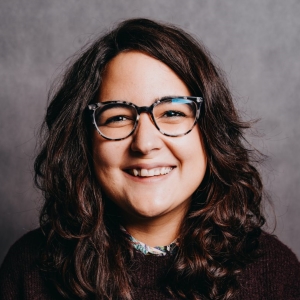
Alba Casado, PhD
email: alba.casado@uj.edu.pl
Dr Casados’s research interests include the study of language perception and production. In particular, how monolingual and bilingual speakers set up and activate their mental lexicon, and the factors biasing the access to different semantic features. She pays special attention to the grammatical gender processing, and to the biological gender of the addressees. Furthermore, in her approach to the study of language processing and production, she combines behavioural measures and brain activity recording techniques, such as event-related potentials, and also eye-tracker.